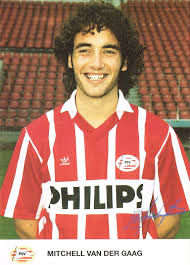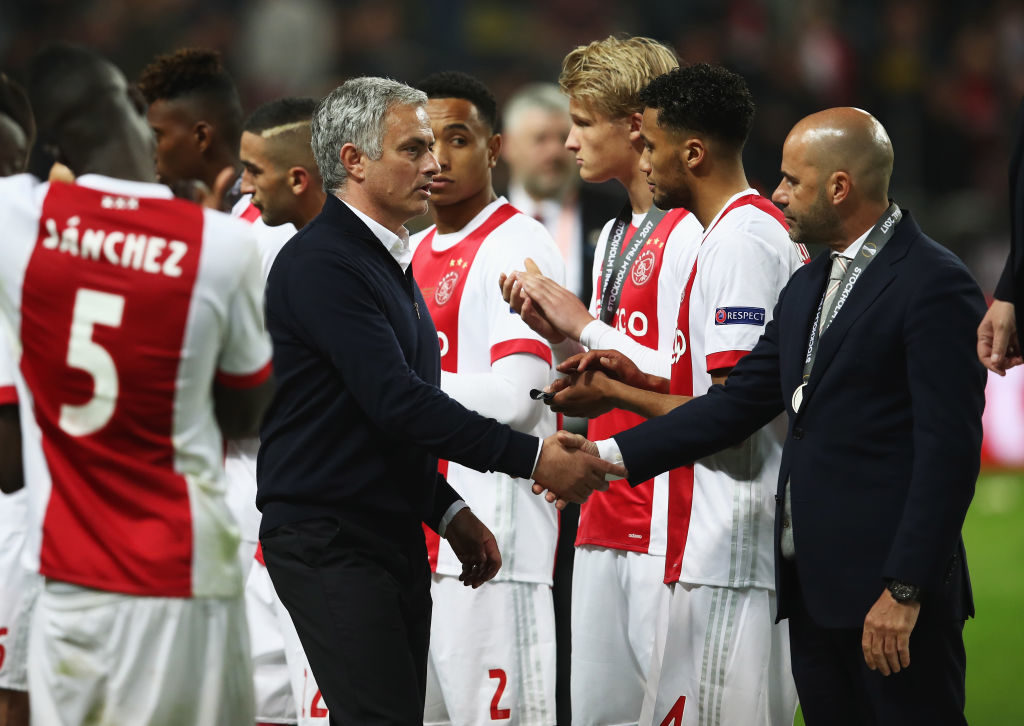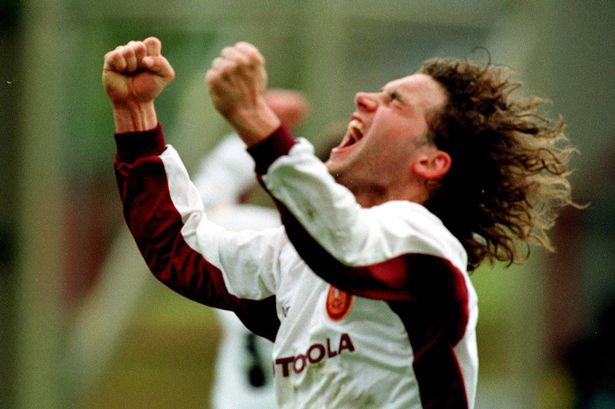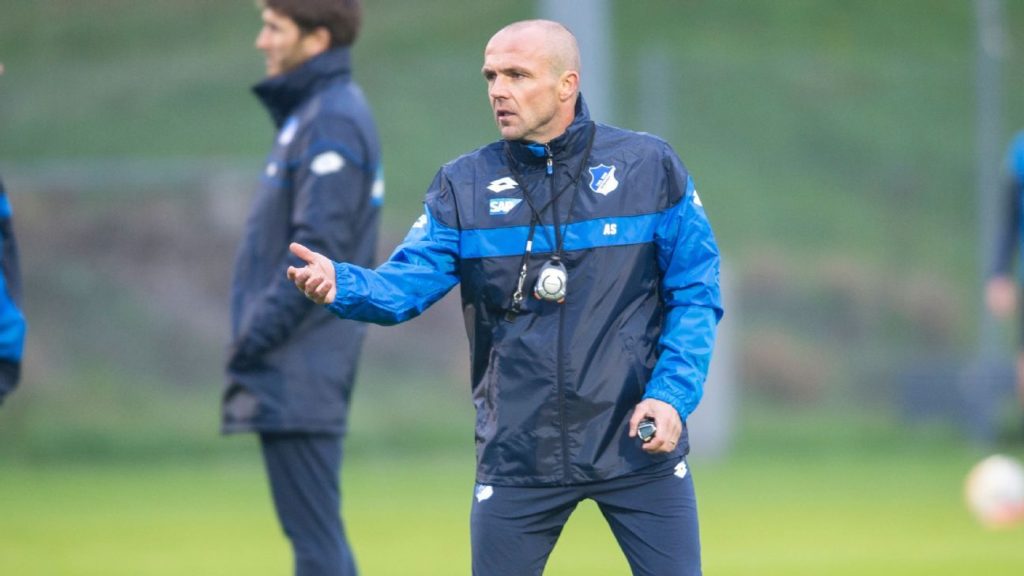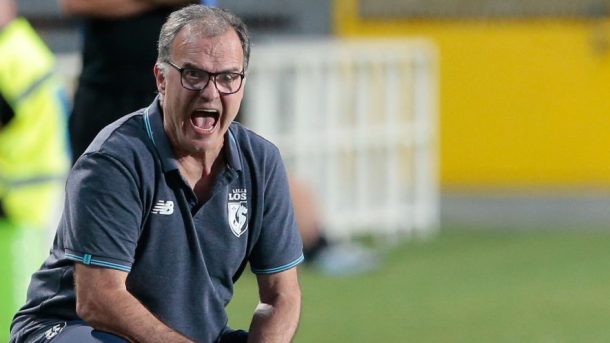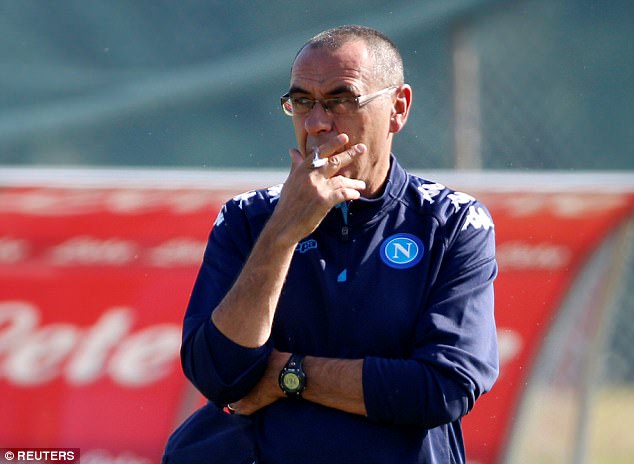The football city of Holland is obviously Rotterdam. The port city has three Eredivisie clubs and a tremendous history. The best stadium of the country, the best pitch of Europe, the most popular club of the country, and with Sparta a club that plays its home games in a castle.
Excelsior is the ugly duckling in Rotterdam. The grounds look like a mediocre amateur club venue. The club is situated in the posh area of Rotterdam, next to the Erasmus University where football competes with cricket, rugby and golf. Their biggest claim to fame is and will always be the fact that their budget used to be made “whole” by collecting old papers from households in the area, which would then be sold to a paper-disposal plant for mere cents… An urban legend, I’m sure.
But, it’s also the most decent club in the country and has and probably always will have the lowest budget in the Eredivisie.
Despite their relative poor stature, Excelsior plays very decent football, pass & move, technically skilled and they even were 7th (!!) in the Eredivisie for a spell. Currently the lowly club is 12th in the league and actually the second club in Rotterdam (with Sparta in relegation land for now).
Excelsior always had a knack of finding good coaches, who would bring something extra to the club. The likes of Mario Been, Fons Groenendijk and Alex Pastoor all did wonderful things here and currently it’s Mitchell van der Gaag who impresses.
Van der Gaag was a promising central defender when he came through the ranks at PSV Eindhoven. He found it tough to compete with PSV peers in the heydays and was out on loan to NEC and Sparta, before he left for Scotland. After Motherwell he returned to play for FC Utrecht and then made his move to Portugal where he became a cult hero for Maritimo. A short spell with Al Nassr followed and after his career (stopped short by injuries) he went on to coach in Portugal before returning to Holland, where he coached FC Eindhoven for one season and is now writing headlines with Excelsior.
Jose Mourinho: “There are many poets in football, but poets don’t win trophies!”. It’s how they think in Portugal. That’s all.
Most Dutch people will remember the way his team Man United won the EL finals against the young Ajax of Peter Bosz. I’m sure Bosz is considered one of the poets, by the Special One and he had his fair share of shenanigans with Dutch coaches before. Like when he was able to run a coaching session for his boss, Louis van Gaal, at Barcelona. And how his boss Van Gaal inspired Mourinho to become a head coach himself. Or how he beat Frank Rijkaard’s Barcelona after he won the CL a season earlier with FC Porto. And how Mourinho inspired Ajax’ and Cruyff’s Velvet Revolution, after Real Madrid simply brushed Martin Jol’s Ajax aside in two matches in the CL. How he played the Ajax of Frank de Boer and had his players get a yellow card to avoid a suspension in the knock-out stages. And mostly, how he beat his old master Van Gaal in the CL finals of 2010.
All this was symbolic for the changes in international football and the changes in the coaching hierarchy. Since the spring of 2015, it were the Portuguese coaches who won trophies, in England (Mourinho himself), Greece (Pereira), Russia (Villas-Boas), Ukraine (Fonseca) and France (Jardim). And it was Santos who won the EC with the Selecao das Quinas in 2016.
The Dutch coaches? Well, Ten Cate won the title in the United Arab Emirates and Van Gaal won the FA Cup with Man United. That’s it, really.
When Van der Gaag arrives in Portugal in 2001, the roles are reversed still. His coaches ask him constantly about the Dutch School. Whenever Mitchell flies to his family in Holland, his coaches would ask him to bring home video tapes of Ajax coaching sessions. “Typical for the Portuguese,” Van der Gaag smiles. “They are followers, it’s in their culture.”
His family resides in Portugal for 16 years now. His oldest son just won a first pro contract with Benfica, where another son also plays in the youth system. He won the title on the second level with Belensenses and had to quit his job due to heart issues. He resumed work on Cyprus and came to Excelsior at the Eredivisie level via FC Eindhoven.
Van der Gaag witnessed how the Portuguese changed their football culture. All thanks to a headstrong student physiology, who went from being Bobby Robson’s translator to one of the most successful coaches of the 21st century. “Mourinho has a different mentality than most Portuguese people. When he won the CL with FC Porto, he made some wholesale changes in the country. The coaches now are more self confident and simply are viewed differently now.”
Van der Gaag at Motherwell
Van der Gaag mentions Leonardo Jardim, who led AS Monaco to the title and the semi finals of the CL. “He is from Madeira, where I worked for nine years at Maritimo. He did not have a huge playing career, and neither did Mourinho. These guys are all university students, physiology, or sports-science, mostly in Lisbon. And they start their coaching careers early. Jardim was 27 years old when he started as assistant coach. And they move their way up the ladder step by step.”
Van der Gaag is still a player when Porto wins the CL. Around that time, the coaching virus grasps him and he finishes his initial Dutch studies in Portugal. “The course in Portugal is so different. In Holland, it’s all about the Verheijen method of not putting too much physical pressure on the players. You need to work with match situations and see how you can find a problem and make it trainable. In Portugal, you go into an intern for 3 weeks and you are being fed all this know-how, from 9 am till 9 pm. You get a fist thick book with all sorts of practices. After that you need to work on a thesis using 75 of these practices and on the exam day you pick a number and use this practice on the training pitch.
Mourinho in his Porto days
Van der Gaag doesn’t believe this is good enough and starts to invest in himself. He saves an amount per month which he uses to buy all sorts of football training books. He studies the Danish physical condition coach Bangsbo’s work, he delves into the work of Professor Castelo and Jose Oliveira teaches Mitchell about tactical period-planning.
“In Portugal, universities play a major role in football development, both in Porto and Lisbon. All the methodologies are being taught. In Lisbon, it’s Castelo and in the North they use the Vitor Frade method, who works for FC Porto and for the university. He is seen as the mentor of Mourinho.”
The quintesses of this tactical period training is that it ignores systems and tasks and roles and running lines, but works with principles. “Tactics is extremely important in Portugal, but systems aren’t. The difference between certain systems is only a few yards, right. The systems actually only exist on paper. And more and more teams seem to be positioned compact, defensively. The Portuguese work more on principles, concepts that assist the players in decision making in particular in the turn-around situations.”
And this is exactly the thing where the Dutch can learn from the Portuguese! “After Ajax’ finals against Man United, I heard a lot of criticism about how Man United played anti-football. I heard the same criticism when Portugal won the EC2016. We want to entertain the crowd, in Portugal, only a victory counts. The word “counter” has a negative connotation in Holland, but a well executed counter is the result of practice and perfectioning moments. In Portugal, all we did was train the turn around moment. (Current Ajax assistant coach) Alfred Schreuder told me that Nagelsmann does the exact same thing at Hoffenheim.”
Alfred Schreuder at Hoffenheim
Van der Gaag uses this at Excelsior. “I basically see four key moments in a match and for each, we use one key principle. They are attack, defense and the two turn-around moments between these two moments. This always comes back in training. Defensively, we have a compact positioning model in the zone. In the turn around, we go for depth as fast as we can. We focus on movement and overlap. All forms of practices are focused on the turn around moments. We practice 3 v 2 and 2 v 1 moments, because this is exactly what happens in a game.”
The ultimate confirmation comes in what Feyenoord thought would be their title-winning match, last season. Feyenoord centre back Botteghin collects the ball, when Feyenoord is 1-0 behind. He dribbles into midfield. And now, the many hours of practice pay off. Excelsior repossesses the ball in the midfield area, and as a result, three attacking minded midfield runners and the striker are in perfect position to counter-attack. They find depth fast, the running patterns are diagonal to confuse the defenders. An overlapping run on the wing and the low early cross across the goal mouth. “That was a wonderful explosion of joy, this is what we train on the whole year,” Van der Gaal smiles.
Physical condition is the most important thing in the turn around, more so than tactics. “The ability and willingness to run 60 meters at full speed, that is the difference. We worked on that with our wingers all season. I showed him videos of Eden Hazard, who constantly makes those runs at Chelsea.”
Apart from book study, Van der Gaag also does his work in Youtube. “I sometimes take a full day to watch videos of top coaches. I love watching Marcelo Bielsa. He’s fantastic. Sometimes I have to rewatch his stuff three times to see what he actually is doing. I learned defensive practices from him. He lets defenders head balls away all the time. Diego Simeone does that too. Players are constantly jumping, tumbling, tackling. We have tend to not to the dirty work at training in Holland. I watch those clips and it inspires me to do similar things here at Excelsior.”
Bielsa
Other coaches I follow are Sampaoli, Antonio Conte and Jose Mourinho. This summer, Maurizio Sarri of Napoli is also on my watchlist. The way Napoli builds up and attacks is incredibly interesting. Sarri is a special guy. He basically watches with a cigaret and every 10 minutes an assistant brings him another espresso. Amazing. And I think, how would people respond to this if I would do that at Excelsior, hahaha.”
Dutch players tend to “get” the turnaround practices quickly, but zonal defending tends to be a problem. “In Portugal, no team playes one on one at the back. If a defenders presses forward and steps out of defense, he’ll get the death penalty. In Portugal, defending is all about guarding the zone. In Holland, in particular in the Jupiler League, it’s all about one v one defending. When my defenders get nervous at Excelsior, they tend to push up. They want to “feel” a direct opponent. This is how we conceded too many goals. And due to my Portuguese DNA now, it’s not what I like to see.”
Van der Gaag wants to put the Excelsior results in perspective. “I can be the smart-ass now, but I can not explain everything. We had a bad spell last season and suddenly, we win four games in a row. And we didn’t do anything different. We just kept the focus on what we did and were doing. I can talk with a deep voice about systems, or methods or principles, but sometimes it just falls into place. And it’s mostly a psychological thing. And I’m focusing on the mental side too. We added a mental coach to the backroom staff this season.”
Tactical periodisation is a key idea in getting teams to perform well. “Books, anyone can read them. But how do you process the info, how do you make it workable in practice and how do you communicate with the players… Guilherme wrote the bible on tactical periodisation but as a coach he simply failed. I’m sure this was not due to the quality of his practices.”
Sarri
“I can see these ideas being used now in Holland by many coaches. Ten Hag, Van Bronckhorst, Groenendijk, Van ‘t Schip, but it’s more than a fad, a hype. Slowly, we see changes coming in Holland.”
So what does Van der Gaag think Dutch football needs to do. “I do follow the discussion of course. We are a bit set in our ways. But it’s not all that bad. I mean, Ajax did reach the EL finals! And the new coaching course is much better and the KNVB has definitely looked at the German way of doing things. Now it’s almost as if the ex footballer can not be the ideal coach. I think we’re now going too far in the other direction.”
Last season Excelsior played seven games in which it had more possession than the opponent. And in all those games, Excelsior ended up losing. “I think consistency is the key to our success but it can also be a reason for failure. I would love to use a Plan B to surprise opponents. But I usually start the pre-season with only 13 players. How am I ever going to get a Plan B in the team?”


